6 Natural Bone and Joint Supplements: Evidence-Based Benefits and Recommended Dosages
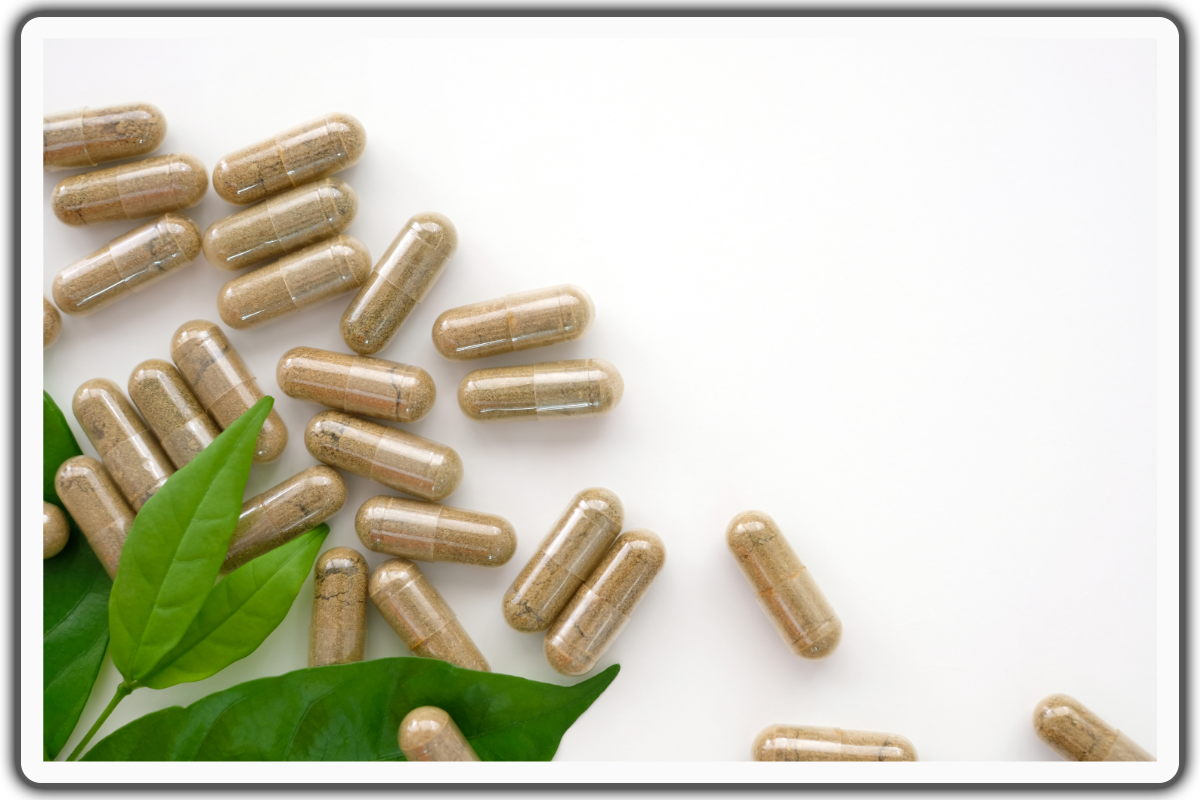
Over the past few decades, you've likely noticed a significant uptick in using natural supplements. This trend is driven by an increasing interest in health and wellness alongside a shift towards holistic healthcare approaches. As awareness of the potential side effects of prescription medications grows, you might consider natural supplements as safer alternatives for managing your health conditions.
Supported by a growing body of scientific research that validates the efficacy of natural compounds, these supplements are gaining credibility. In this article, we’ll dive into a detailed review of six key natural bone and joint supplements, helping you understand their effectiveness, recommended dosages, and limitations to inform your health choices better.
1. Green-lipped Mussel
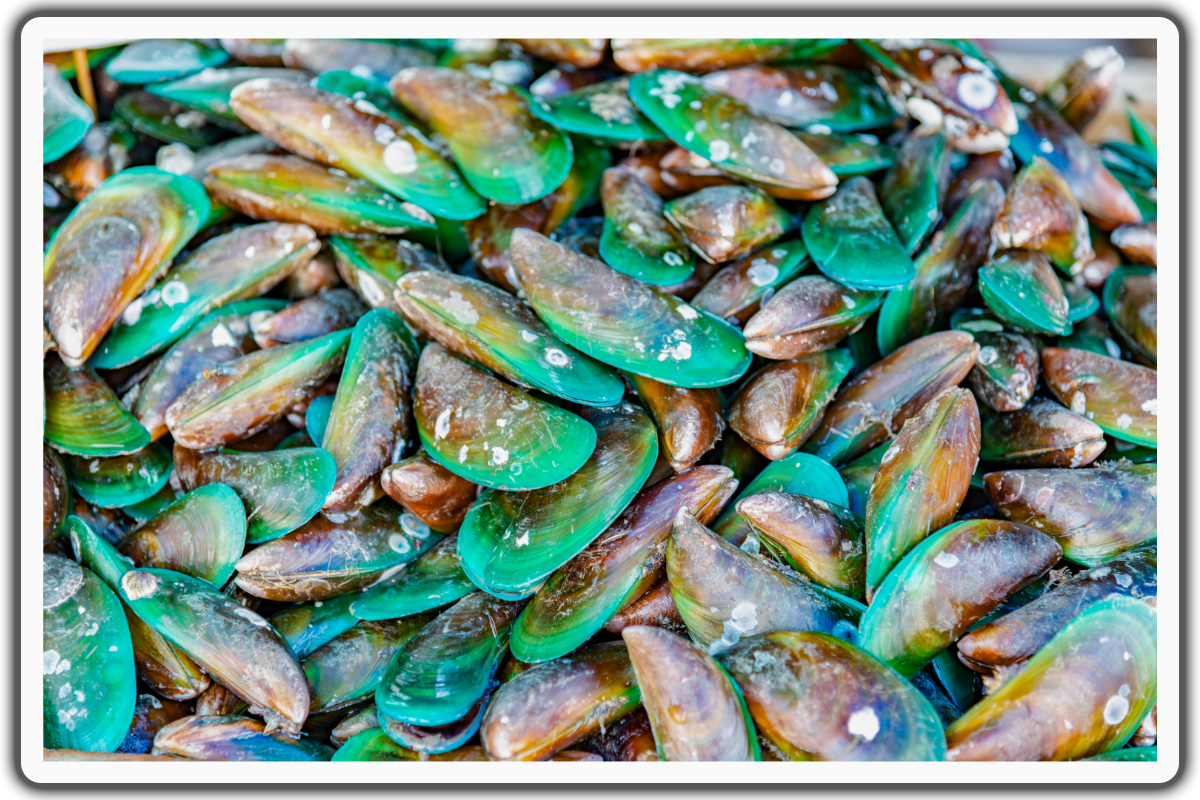
Green-lipped mussel, scientifically known as Perna canaliculus, is a unique type of shellfish indigenous to the pristine coastal waters of New Zealand. It boasts abundant omega-3 fatty acids, prized for their anti-inflammatory properties. It is renowned as one of the best natural joint supplements.
- Evidence-based Benefits
- Muscle and Joint Health
You might be familiar with the recommendation of fish oil for arthritis. Still, research indicates that opting for Perna canaliculus extract from the green-lipped mussel could be a superior choice in terms of effectiveness.
In a 2013 study, researchers gave patients with arthritis fish oil or green-lipped mussel extract for 12 weeks. Upon monitoring, results showed that patients treated with Perna canaliculus showed a statistically significant improvement in pain and quality of life. Better yet, they experienced no side effects.
On the other hand, patients treated with fish oil exhibited considerably lower improvement and experienced heightened physical discomfort due to side effects.
The researchers suggested that due to the potential side effects, the large dosages required, and the long duration needed for fish oil, practitioners might consider stabilized Perna canaliculus oil as a safer and faster-acting first-line treatment for patients with osteoarthritis.
Moreover, a 2013 study showed that participants who took marine oil supplements experienced reduced muscle soreness, pain, strength loss, fatigue, and inflammatory proteins in their blood, leading to less overall bodily stress after their workouts.
- Stomach Health

Other studies have shown similar results and have found that this extract can help ease stomach discomfort. This is a big plus, as many patients with arthritis take a lot of medications that can cause stomach upset.
In 2012, researchers reported that green-lipped mussels significantly improved knee joint pain, stiffness, and mobility. It also significantly improved gastrointestinal symptoms by 49 percent in arthritis patients.
Furthermore, the Blue Ocean Institute has ranked the New Zealand green-lipped mussel among the top eco-friendly seafood.
B. Recommended Dosage
The commonly recommended dose for easing arthritis pain is between 1,050 milligrams and 2,100 milligrams daily of the freeze-dried powder or 210 milligrams daily of the lipid extract.
2. Chondroitin Sulfate
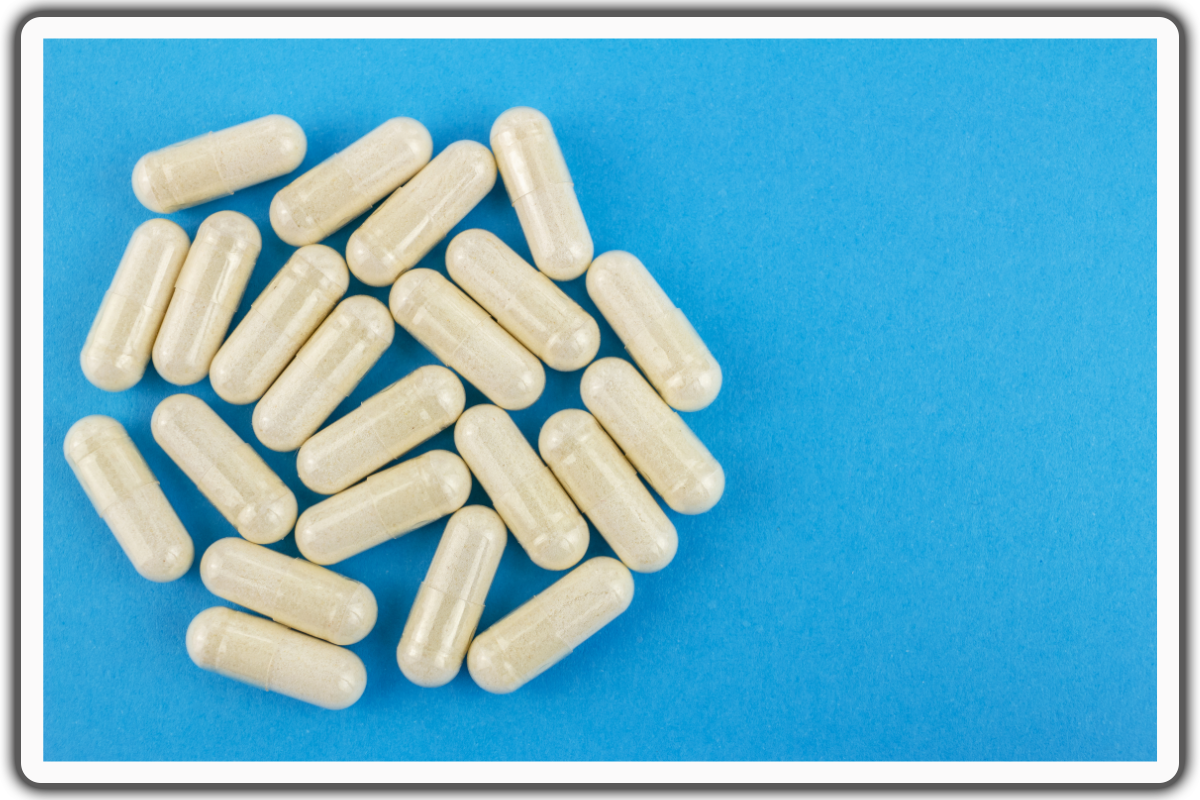
Chondroitin sulfate is a naturally occurring compound predominantly present within the cartilage of cows, pigs, and sharks. This compound is essential in preserving the structural strength of cartilage and serves as a key component in dietary supplements aimed at supporting joint health. Commonly extracted from these animal sources, chondroitin sulfate is used in treatments to alleviate osteoarthritis and joint pain symptoms. It is also present in everyday products, including certain types of green tea, enhancing its accessibility as a beneficial supplement.
A. Evidence-based Benefits
This supplement is already included in many joint products, and for a good reason. It’s a natural substance that’s a major component of cartilage. It also helps build connective tissues that support joints and is involved in joint lubrication.
Moreover, a study has shown that chondroitin sulfate is an effective supplement component, playing a significant role in supporting the regeneration of tendon tissue.
As we age, the body’s production of chondroitin starts to slow, so it makes sense that replenishing it might help. The Arthritis Foundation states that it seems to enhance collagen's “shock-absorbing” properties and protect cartilage from breakdown. When used together with glucosamine, it may reverse cartilage loss.
The largest study on chondroitin sulfate, published in 2006, involved 1,600 people with knee osteoarthritis. Those treated with glucosamine and chondroitin experienced significant pain relief. In a later 2010 study, the combination supplement was as effective as the prescription painkiller Celebrex (celecoxib).
B. Recommended Dosage
The commonly recommended dose of chondroitin for joint pain is 1,200 milligrams daily, broken up into three servings of 400 milligrams each.
3. Glucosamine
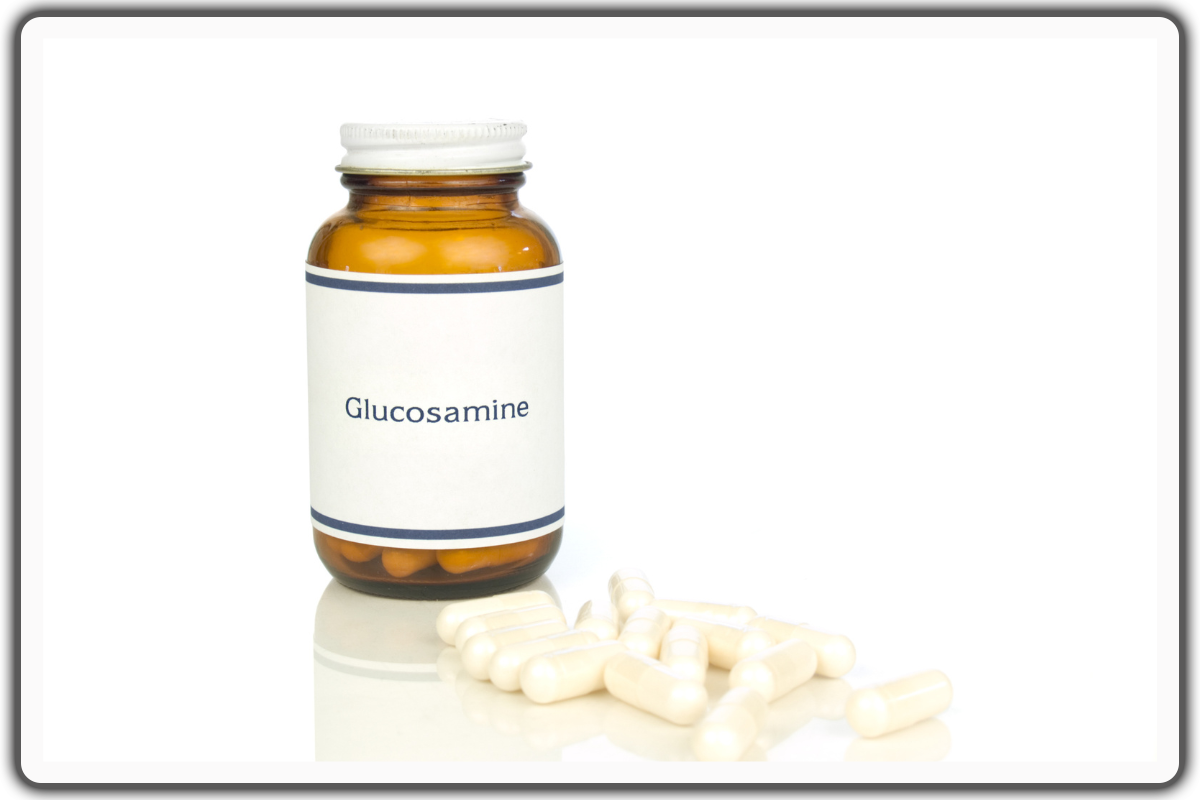
Glucosamine in supplements comes from either the shells of shellfish or can be artificial in the laboratory. One of the most commonly used supplements is the laboratory form “glucosamine sulfate,.” Which has been shown in studies to help reduce inflammation and regenerate cartilage.
A. Evidenced-based Benefits
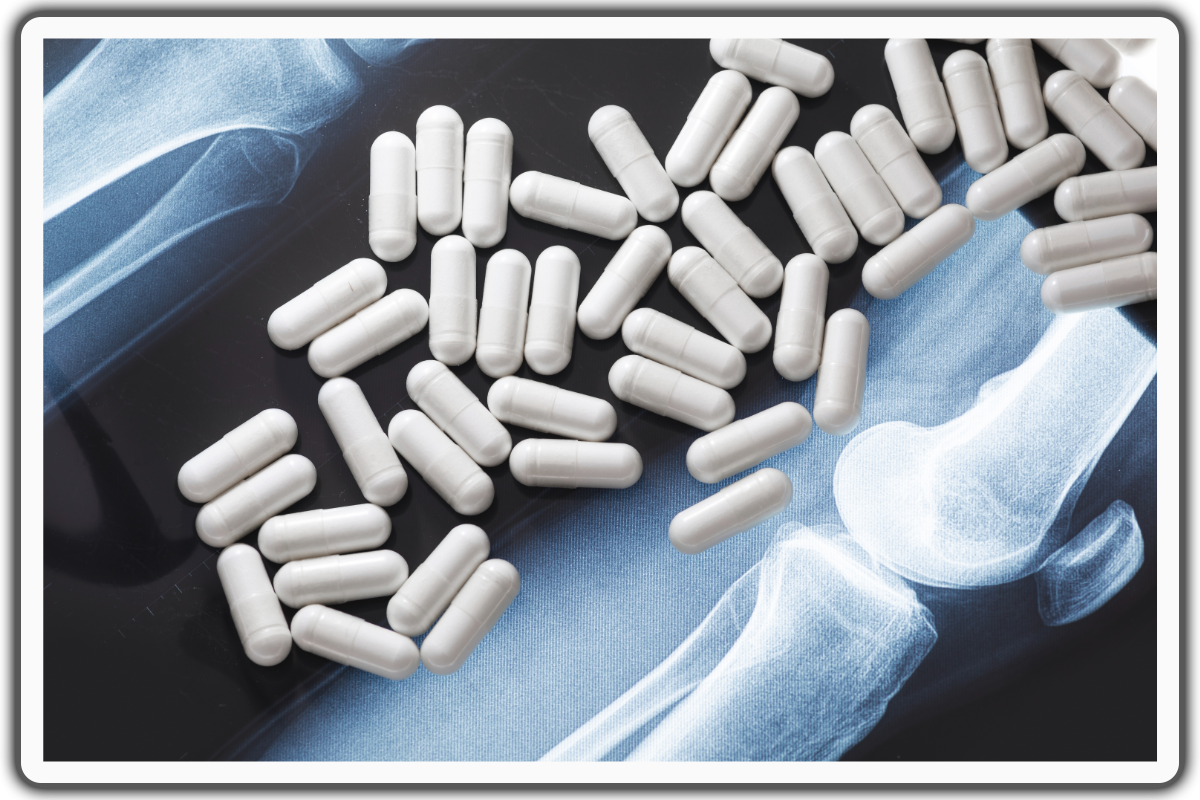
In 2015, researchers compared a combined glucosamine and chondroitin supplement with celecoxib in about 600 patients with knee osteoarthritis. At the end of the study period, researchers concluded that the two treatments were comparable in reducing pain, stiffness, joint swelling, and functional limitations.
Furthermore, a large review of 54 studies involving 16,427 people published the same year also reported that the combination supplement along with celecoxib was all more effective than the placebo in relieving the pain of arthritis as well as in improving daily function.
Moreover, a 2018 review of randomized controlled trials (RCTs) on glucosamine revealed a favorable impact on pain alleviation, although the effect size is limited. Based on these findings, clinicians should consider recommending glucosamine as a supplement for patients with osteoarthritis (OA).
Research indicates that glucosamine sulfate, an over-the-counter supplement, is safe and may offer some relief for individuals with knee osteoarthritis. However, no conclusive evidence suggests that glucosamine can slow down or halt joint deterioration.
B. Recommended Dosage
When considering glucosamine supplements for joint health, the dosage you'll need can depend on the form of glucosamine you choose:
- Glucosamine sulfate: A common recommendation is 1,500 mg per day. You can take this all at once or split it into smaller doses, such as 500 mg three times a day.
- Glucosamine hydrochloride: This form is also generally taken in 1,500 mg daily, either in a single dose or divided throughout the day.
4. Methylsulfonylmethane
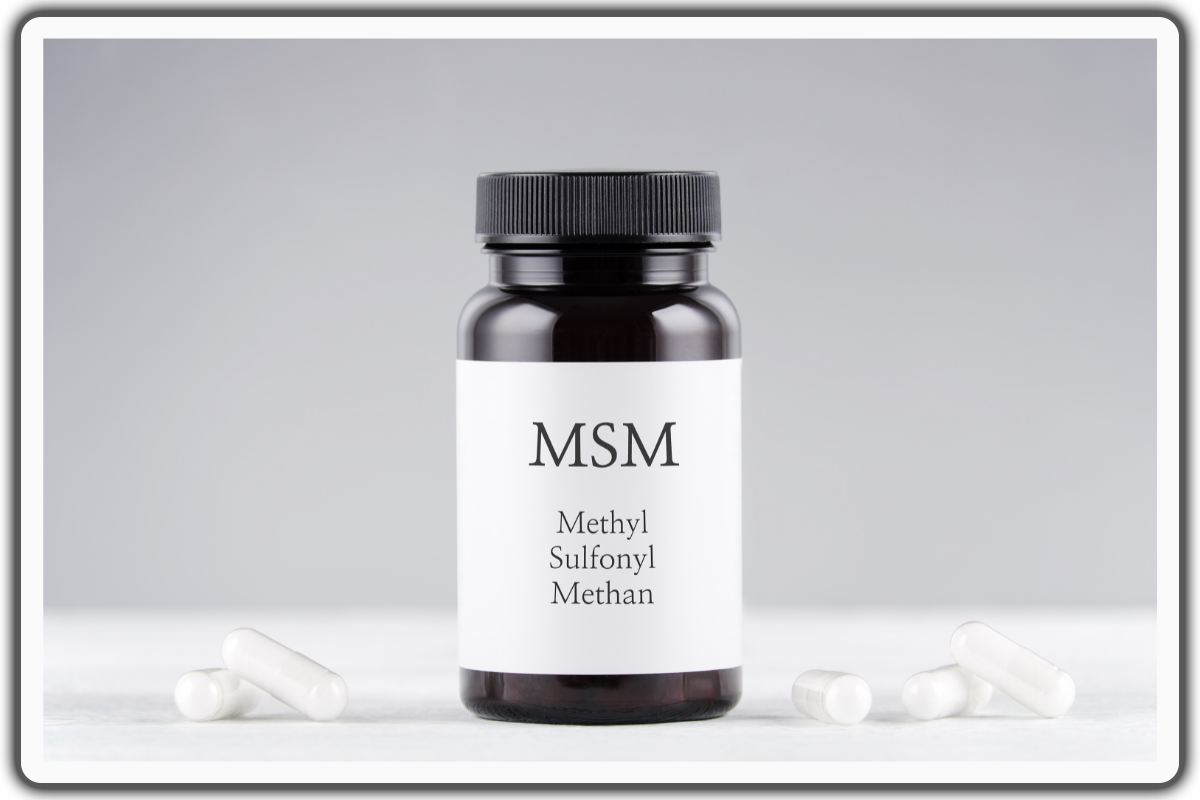
Methylsulfonylmethane, or MSM, is a sulfur-containing compound naturally occurring in primitive plants and small amounts in many foods and drinks. In the late 20th century, Dr. Stanley Jacob and Robert Herschler at the University of Oregon propelled MSM's rise as a dietary supplement by exploring its benefits in reducing pain, inflammation, and allergy symptoms. This made it popular for enhancing joint health and reducing inflammation.
Research has demonstrated that MSM can decrease joint inflammation, boost collagen production, and improve mobility, especially when used alongside glucosamine.
MSM, whether naturally produced or manufactured, demonstrates biochemical capabilities in mediating oxidative stress and inflammation and is well tolerated for treating arthritis and a range of conditions linked to inflammation, physical functioning, and performance. Additionally, recent research indicates that MSM could potentially contribute to the management of different cancer types or metabolic syndromes in the future.
While research suggests the potential advantages of MSM, it's important to acknowledge the constraints inherent in these broad-scale investigations.
B. Recommended Dosage
The available research suggests MSM could be beneficial, with a typical daily dosage recommended at 1,500 milligrams.
5. Devil’s Claw
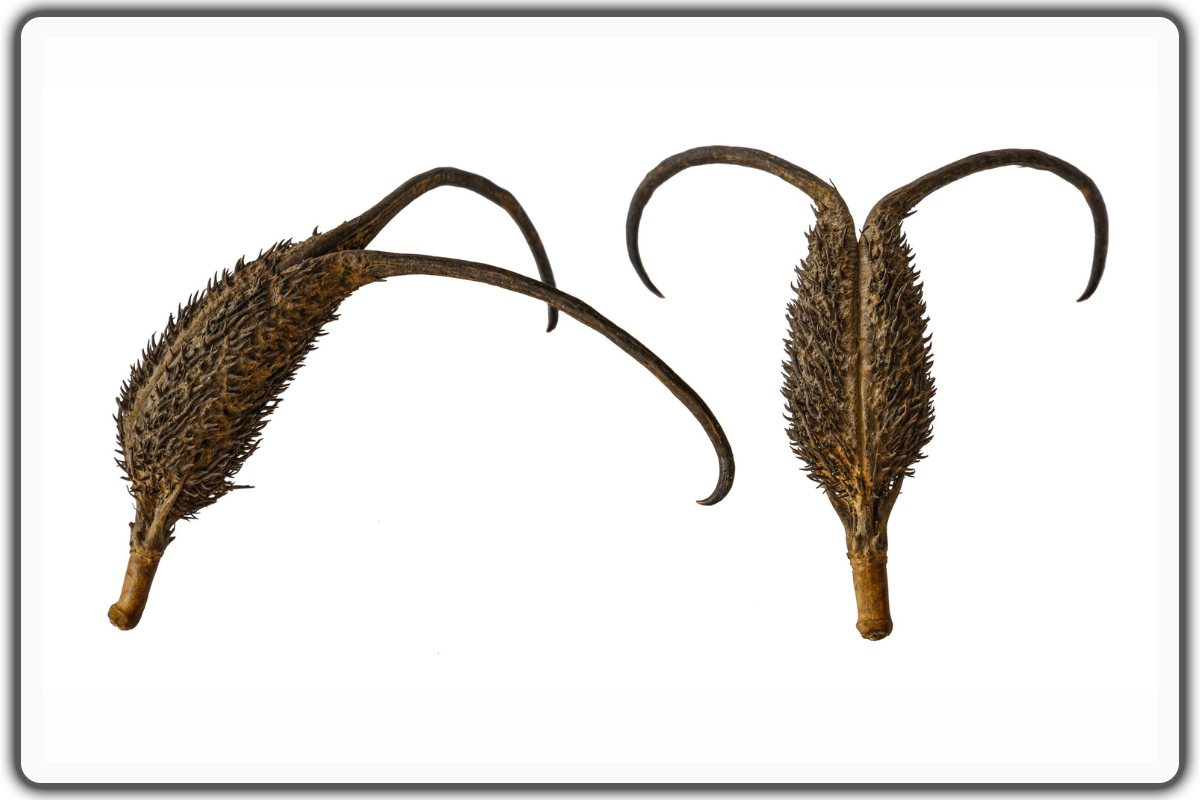
Devil's Claw, or Harpagophytum procumbens, originated from the deserts of Southern Africa and was first used medicinally by the indigenous San and Khoi peoples. They utilized the plant's roots to treat pain, fever, and digestive issues.
Devil's Claw, introduced to the Western world in the early 20th century, gained popularity in Europe for its ability to treat arthritis and rheumatism, thanks to its anti-inflammatory and analgesic properties. The key active compound, harpagoside, has been scientifically validated for its effectiveness, further establishing Devil's Claw's place in global herbal medicine practices.
A. Evidence-based Benefits
Modern research shows that devil’s claw is a powerful anti-inflammatory and analgesic (pain reliever) and, therefore, effective for all types of pain, including that caused by osteoarthritis, rheumatoid arthritis, and even headaches.
Studies have also demonstrated that Devil's Claw plants possess various medicinal properties, including anti-cholesterolemic, antioxidant, anti-inflammatory, and analgesic effects, effectively treating numerous conditions. These include rheumatoid arthritis, memory loss, lower back pain, osteoarthritis, lumbago, syphilis, diabetes, indigestion, and heartburn. Additionally, Devil's Claw is used as a detoxifying and tonic agent.
Scientists believe that the compound called “harpagoside” in Devil’s Claw is responsible for much of its anti-inflammatory action. However, the root contains other anti-inflammatory compounds, including antioxidants and antispasmodics.
What sets Devil’s Claw apart is its ability to influence the COX-2 enzyme, effectively suppressing it directly. This action reduces pain and inflammation. This mechanism mirrors the effects of common over-the-counter and prescription medications, making it a natural and effective alternative.
B. Recommended Dosage
The most commonly recommended dose for pain is 2,000 milligrams to 2,600 milligrams (containing 50 milligrams to 60 milligrams of harpagoside) taken three times a day with meals. Since it may increase bile production, those at risk for gallstones are advised to avoid it.
6. Boron: A Vital Element in the Best Natural Joint Supplements
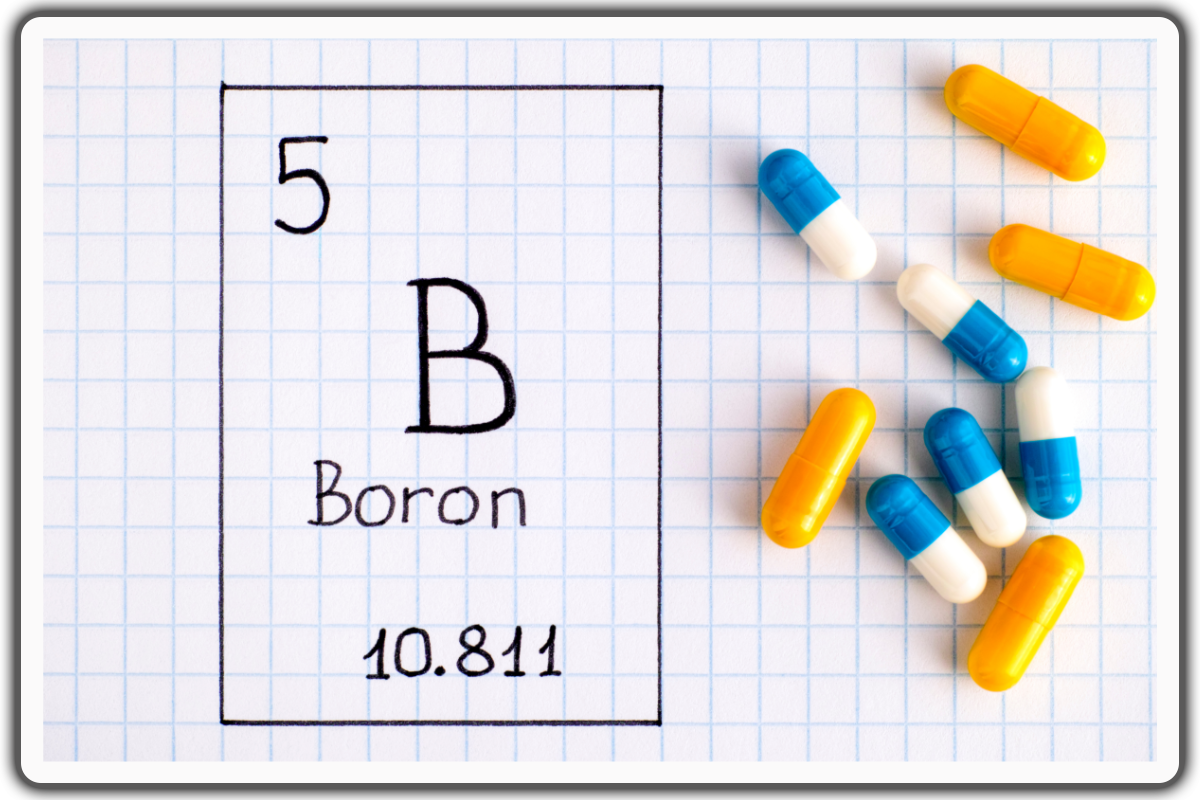
Boron is a trace mineral naturally present in some foods and the environment. Plants use it to protect cell walls, so we find it in plant-based foods. It’s present in grapes, avocados, raisins, prunes, almonds, and pecans. Scientists have found that boron is an essential nutrient for people because it helps contribute to bone health.
A. Evidence-based Benefits
We don’t need a lot of boron to be healthy, but some studies have shown that taking a bit more can help ease arthritis symptoms.
Research has shown a wide range of its benefits. The study concluded that boron is a crucial trace mineral that supports bone growth and maintenance, enhances wound healing, and positively affects the body's use of hormones and vitamins like estrogen, testosterone, and vitamin D. It also boosts magnesium absorption, lowers inflammatory markers, increases antioxidant enzyme levels, and offers protection against oxidative stress and heavy metal toxicity. Furthermore, boron improves brain functions such as cognitive performance and memory in the elderly, influences key biomolecules, and has potential preventive and therapeutic effects against various cancers while possibly mitigating the side effects of conventional chemotherapy.
Consequently, another study indicates that consuming more than 1 mg of boron daily could enhance longevity and improve quality of life. Therefore, increasing intake by including more fruits, vegetables, nuts, and pulses is advisable, which should be considered a sensible dietary recommendation.
B: Recommended Dosage
The recommended dose is up to 6 milligrams of boron per day, with an upper daily limit of 13 milligrams.
Take Aways
While joint health supplements can help support healthy bones and joints, a holistic approach prioritizes exercise, vitamins, and a healthy diet is essential. This article explores six natural supplements that may be beneficial, but remember, these should complement, not replace, healthy habits for bone health.

Regular Exercise: Participating in weight-bearing activities such as walking, running, dancing, and strength training significantly influences muscle strength and makes the bones stronger. Physical activity enhances flexibility and contributes to maintaining a healthy weight. It stimulates the body to produce synovial fluid, which acts as a lubricant for joints, keeping them moving smoothly.

A Balanced Diet: Fuel your body with a balanced diet of whole grains, lean protein, fruits, and vegetables to provide the essential vitamins and minerals to support healthy bones and joints. Focus on incorporating calcium, vitamin D, vitamin K, and magnesium, as these are crucial nutrients for keeping bones strong and joints healthy.

Essential Vitamins: In addition to maintaining a nutritious diet, consider incorporating specific vitamins and other supplements that can significantly impact bone and joint health. Essential minerals, such as calcium, play a critical role, while Vitamin D is essential for your body to absorb these minerals effectively. Vitamin K is crucial for the mineralization of bones, and including supplements like hyaluronic acid can also support joint health.
References
KW: a study in 2013 showed
Indiana University. (2015, February 24). Marine oil supplement has positive effects on post-exercise muscle damage. ScienceDaily. Retrieved April 30, 2024 from www.sciencedaily.com/releases/2015/02/150224131207.htm
KW: improved gastrointestinal symptoms by 49 percent
Coulson, S., Vecchio, P., Gramotnev, H., & Vitetta, L. (2012). Green-lipped mussel (Perna canaliculus) extract efficacy in knee osteoarthritis and improvement in gastrointestinal dysfunction: a pilot study. Inflammopharmacology, 20(2), 71–76. https://doi.org/10.1007/s10787-012-0128-6
reducing pain, stiffness, joint swelling, and functional limitations.
Clegg, D. O., Reda, D. J., Harris, C. L., Klein, M. A., O'Dell, J. R., Hooper, M. M., Bradley, J. D., Bingham, C. O., 3rd, Weisman, M. H., Jackson, C. G., Lane, N. E., Cush, J. J., Moreland, L. W., Schumacher, H. R., Jr, Oddis, C. V., Wolfe, F., Molitor, J. A., Yocum, D. E., Schnitzer, T. J., Furst, D. E., … Williams, H. J. (2006). Glucosamine, chondroitin sulfate, and the two in combination for painful knee osteoarthritis. The New England journal of medicine, 354(8), 795–808. https://doi.org/10.1056/NEJMoa052771
large review of 54 studies
Zeng C, Wei J, Li H, Wang YL, Xie DX, Yang T, Gao SG, Li YS, Luo W, Lei GH. Effectiveness and safety of Glucosamine, chondroitin, the two in combination, or celecoxib in the treatment of osteoarthritis of the knee. Sci Rep. 2015 Nov 18;5:16827. doi: 10.1038/srep16827. PMID: 26576862; PMCID: PMC4649492.
favorable impact on pain alleviation
Ogata, T., Ideno, Y., Akai, M., Seichi, A., Hagino, H., Iwaya, T., Doi, T., Yamada, K., Chen, A. Z., Li, Y., & Hayashi, K. (2018). Effects of glucosamine in patients with osteoarthritis of the knee: a systematic review and meta-analysis. Clinical rheumatology, 37(9), 2479–2487. https://doi.org/10.1007/s10067-018-4106-2
tolerated for treating arthritis
Butawan, M., Benjamin, R. L., & Bloomer, R. J. (2017). Methylsulfonylmethane: Applications and Safety of a Novel Dietary Supplement. Nutrients, 9(3), 290. https://doi.org/10.3390/nu9030290
Devil's Claw plants possess a range of medicinal properties
Gxaba, N., & Manganyi, M. C. (2022). The Fight Against Infection and Pain: Devil's Claw (Harpagophytum procumbens) a Rich Source of Anti-Inflammatory Activity: 2011-2022. Molecules (Basel, Switzerland), 27(11), 3637. https://doi.org/10.3390/molecules27113637
wide range of its benefits
Pizzorno L. (2015). Nothing Boring About Boron. Integrative medicine (Encinitas, Calif.), 14(4), 35–48. Retrived from: https://www.ncbi.nlm.nih.gov/pmc/articles/PMC4712861/
potentially enhance longevity and improve quality of life
Nielsen, F. H., & Meacham, S. L. (2011). Growing evidence for human health benefits of boron. Journal of Evidence-Based Complementary & Alternative Medicine, 16(3), 169-180. https://doi.org/10.1177/2156587211407638
